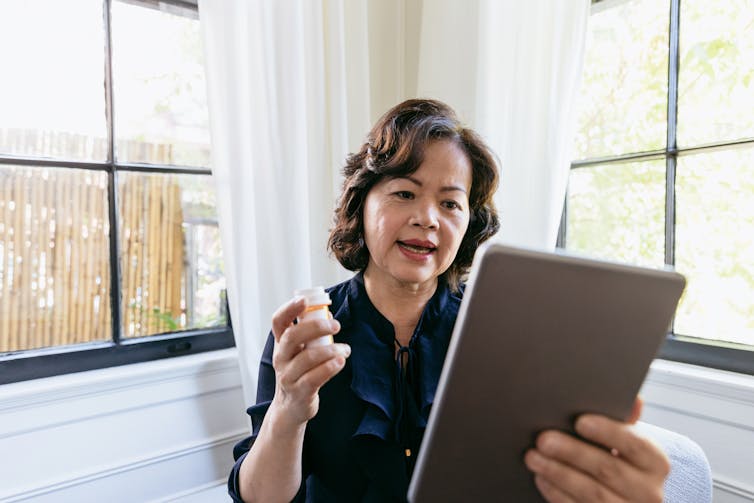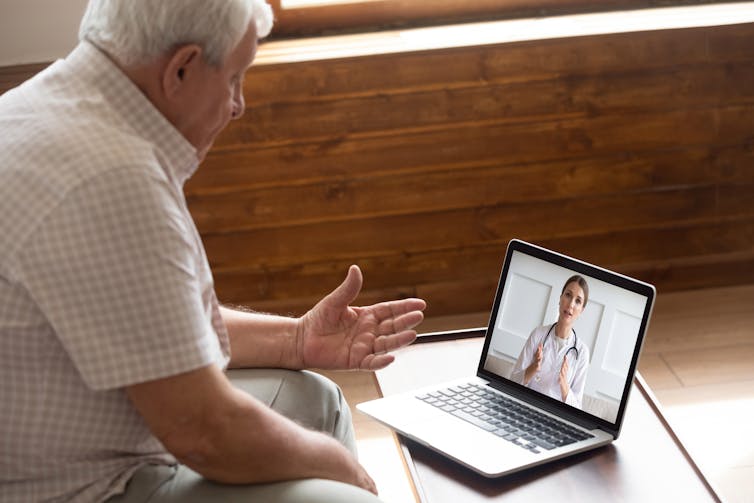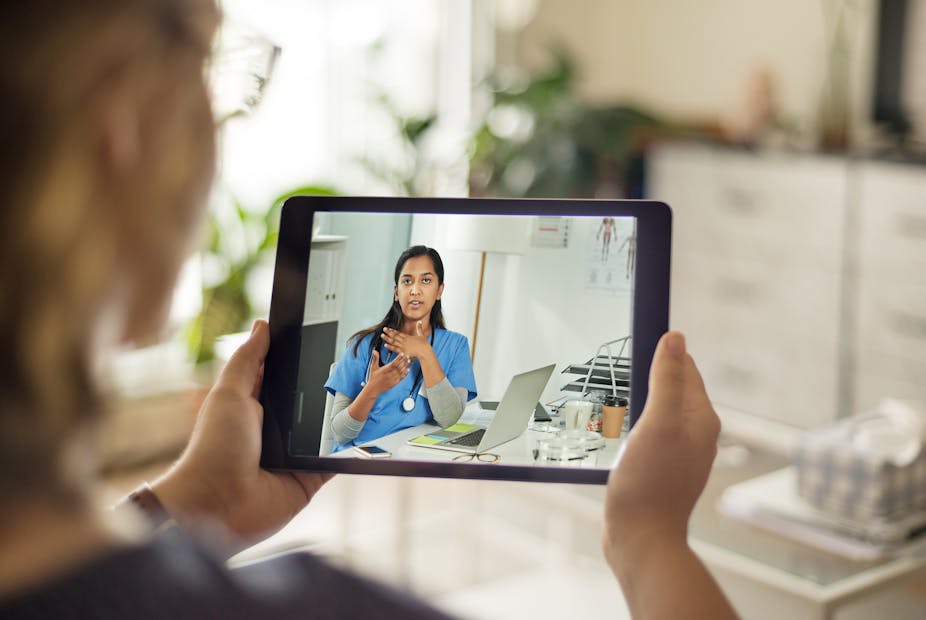The coronavirus has resulted in stress, anxiety and fear – symptoms that might motivate a person to see a therapist. Because of social distancing, however, in-person sessions are less possible. For many, this has raised the prospect of online therapy. For clients in need of warmth and reassurance, could this work? Studies and my experience suggests it does.
I am a psychologist and counselor at the University of South Florida. When our center named me its online assisted therapies coordinator, many of the staff initially pushed back at the notion of providing services through the screen. These negative attitudes toward telehealth should have surprised me. After all, its antecedent, telephone crisis lines, have been accepted and effective for decades.
But my field of therapy has often been disdainful of telehealth, opposed to “warm” psychotherapy work performed via a “cold” screen. Its resistance to the concept has changed little over the years.
Research suggests, however, that online therapy works just as well as traditional face-to-face therapy. Studies, looking at outcomes for clients and the quality of their relationships with therapists, found them equal across telehealth and in-person conditions. Since this meta-analysis (92 studies and 9,000 clients), many other studies have confirmed the value of teletherapy.

Telehealth versus traditional therapy
Private insurance companies like Cigna and Aetna, have come around; they now provide coverage for what they see as a “legitimate” service. And surveys show consumers are receptive to telehealth counseling: no driving to an appointment, no searching for a parking space, no worries about childcare while they’re away, no need to switch providers if they move, and no problem if the specialist happens to be far away.
Online therapy opens doors for clients who wouldn’t otherwise seek help, particularly patients who feel stigmatized by therapy or intimidated by a stranger sitting across the room from them. Often, people open up more easily in telehealth sessions. Firsthand accounts have detailed positive experiences from consumers.

Overcoming prejudices about online counseling
Now COVID-19 is forcing most traditional psychotherapists to adapt their practice to online counseling. After experiencing the medium, they are overcoming their prejudices. Many will convert some or all of their caseloads to telehealth after the pandemic ends. Most of our clients seem to be good with it: responding to a satisfaction survey, 85% of USF students strongly or somewhat agreed their telehealth experience was comparable to an in-person visit.
All this allows a continuity of care for clients that before was impossible; there is, however, a caveat. Because of the coronavirus, some of my clients at USF who live out-of-state have moved back home. That means, legally, I can no longer serve them. Even though they are still USF students, my license is valid only in Florida.
For telehealth to work effectively, our national system of licensing and regulation law needs to adapt. Although the federal government temporarily halted HIPAA regulations to promote telehealth during this time, not all states are allowing out-of-state practice. The coronavirus may not be here forever, but spring break and Christmas holidays always will. We need seamless telehealth across state lines.
That said, my own counseling center quickly transitioned to remote-only. Although most of the therapists can’t wait to get back into the office, they are appreciative they can serve students in need. Certainly many clients and therapists will gladly return to face-to-face sessions, but now they know the tool of telehealth will always be available, if and when needed.
So much is changing. Now, consumers can easily access online therapy. Free e-books are available; one dealing directly with the pandemic is “FACE COVID,” by Russ Harris. Apps are around too – some free, some paid. Check out the website psyberguide.org to vet them. Asking for suggestions online will help as well.
Your insurance may allow you to talk to a licensed professional who does online therapy. Most major insurers have a list of them on their website. If you’re uninsured, most communities have free or low-cost mental health clinics. Many universities have them too. Also, online directories can point you to places that offer services on a sliding scale, depending on your income, from pro bono to US$60 a session.
After years of dismissing telemedicine, practitioners are getting past their biases in barely a few weeks. Telehealth has allowed psychotherapy to continue unabated. More people who need help will now get it. I’m sad our profession needed COVID-19 to address telehealth, but the benefits will last for generations.
[You need to understand the coronavirus pandemic, and we can help. Read The Conversation’s newsletter.]

